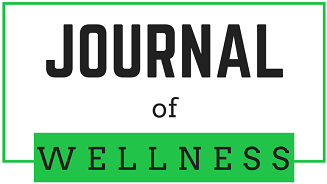
Funder
The authors received no specific funding for this work.
Conflict of Interest
The authors have no conflict of interest to declare for this work.
Abstract
Introduction: The current literature regarding both specific interventions and the current level of nutrition education in the United States is scarce. The purpose of this paper is to provide medical student perspectives on both the degree and necessity of nutrition education during medical school.
Methods: Medicine in Motion (MM) is a non-profit student-run organization founded in 2018 that aims to address burnout in medicine through physical activity, community service, and philanthropy. MM issued a survey to nine of its chapters in January 2021 to assess a range of topics including burnout, physical activity, and nutrition education.
Results: Of 5500 invited students, 1182 (21.5%) responded. An average of 1.2 hours of formal nutrition education per year was reported across all participants. Students who received any degree of nutritional education reported 2.9 hours per year. Most students (57.6%) had not participated in a medical school course that provided formal education in nutrition. Of those that did participate in a nutrition course (42.4%), the course was required for 84.7% of students and the majority (80.1%) received 0-10 hours of nutrition education. Most respondents (88.7%) reported that requiring formal nutrition education should be a graduation requirement and a similar number of students (89.3%) believe medical students should receive formal training on nutrition counseling for patients. The majority (93.3%) of students either somewhat or strongly agreed that understanding the effects of nutrition/eating decisions on the human body is critical to maximizing patient care.
Conclusion: Based on prior studies, physicians feel underprepared to provide nutrition counseling to their patients despite the large role poor diet plays in the burden of disease. Most medical students in this cohort believe that understanding nutrition is vital to maximize patient care. Funding and curricular changes should be allocated towards expanding the nutrition curriculum across U.S. medical schools.
DOI
10.55504/2578-9333.1167
Recommended Citation
Duggan, Michael P.; Kodali, Anahita T.; Panton, Zach A.; Smith, Shannon M.; Riew, Grant J.; Donaghue, Jack F.; Leya, Gregory A.; and Briggs, Logan G.
(2023)
"Survey of Nutrition Education Among Medical Students,"
Journal of Wellness: Vol. 4
:
Iss.
2
, Article 11.
DOI: https://doi.org/10.55504/2578-9333.1167
Available at:
https://ir.library.louisville.edu/jwellness/vol4/iss2/11
Included in
Dietetics and Clinical Nutrition Commons, Medical Education Commons, Medical Nutrition Commons
